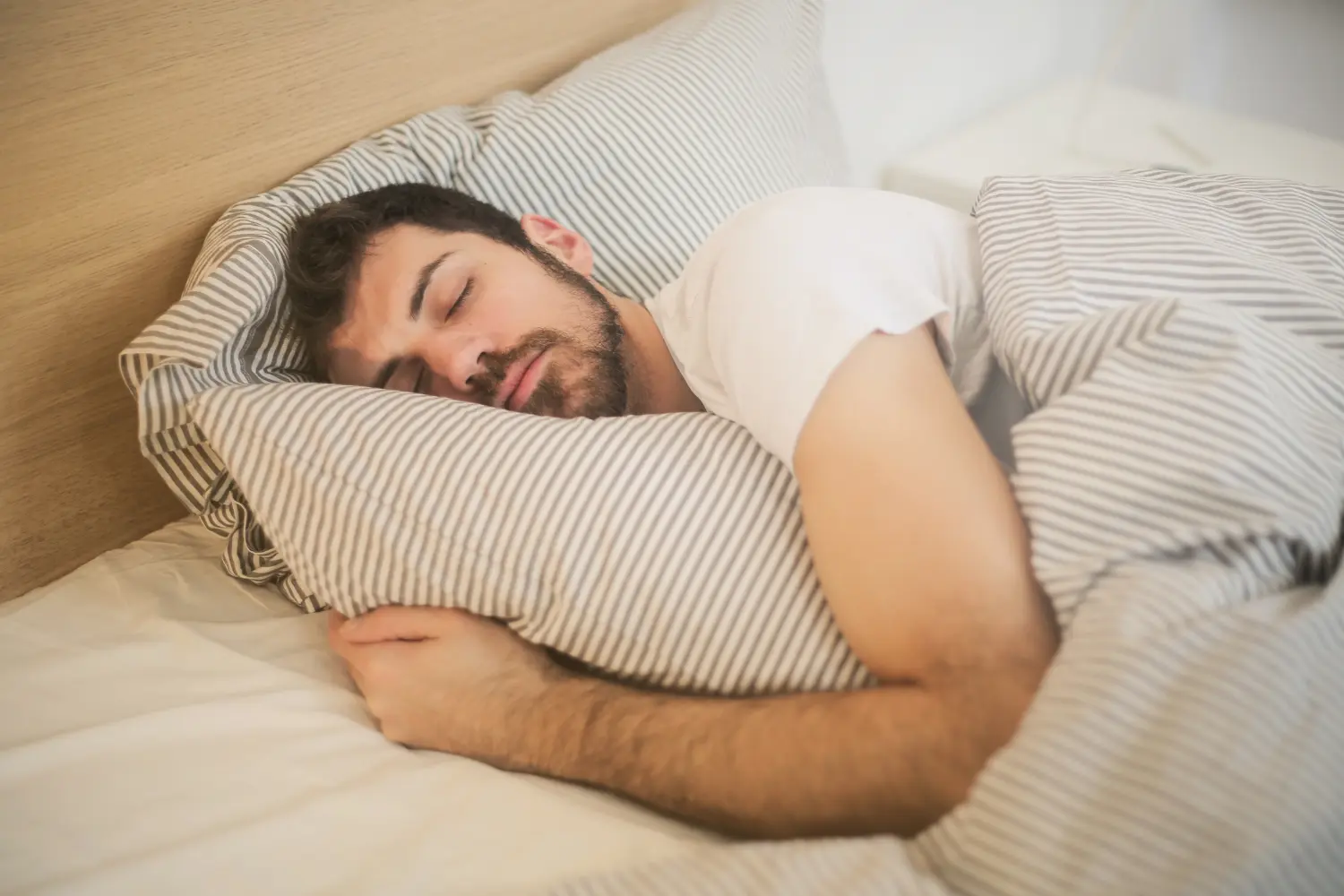Are You Getting Enough Sleep?
Know the in’s and out’s of sleep to start the school year right.
Aug 12, 2019During the summer, you have more freedom to nap in a hammock, stay up late and slumber till noon if you choose. When the days are long and your schedule is lazier, you don’t have to follow a rigid schedule, be at school at the crack of dawn, or study into the wee hours of the night.
As fall and a new school year approaches, your body will need to adjust to a new sleep schedule. If your summer sleep schedule is completely different from your school sleep schedule, it will take longer to adjust. Start the school year off right--Find out how much sleep you need, why you need it, and how to fit it more easily into your busy schedule.
 Find out how much sleep you need, why you need it, and how to fit it more easily into your schedule.Courtesy of Sleepadvisor
Find out how much sleep you need, why you need it, and how to fit it more easily into your schedule.Courtesy of Sleepadvisor
The Consequences of Skipping Sleep
You need sleep to live as much as you need water and air—Your brain depends on it. Important brain activity happens when you’re sleeping, functions that you need to think and perform well during the day. Hormones that help you develop into a healthy adult only release while you’re asleep. Skipping sleep over time will start to make you moody and angry with your friends and family, unable to concentrate during tests, remember important information or perform well at a sport. You’ll be more likely to get sick, get injured, or get into a car accident if you’re driving drowsy. You’re more likely to have depression. Here are a few other consequences of skipping out on sleep:
- You’re more likely to get pimples, acne or other skin problems.
- You’re more likely to lose patience, yell or be aggressive with everyone around you.
- You’re more likely to eat sweet or fried foods, leading to weight gain.
- You’re more likely to use caffeine, nicotine and alcohol.
 Skipping sleep over time will hurt you academically, physically and emotionally.Courtesy of 3. gmu.edu
Skipping sleep over time will hurt you academically, physically and emotionally.Courtesy of 3. gmu.edu
Why Do Teens Get Less Sleep?
Studies tell us that most teens do not sleep enough. They need between 8 and 10 hours a night (preferably 9), but many only get about 7 or so. Here’s why:
- Are you a night owl? You’re not alone. During your teen years, your biological clock resets, telling you fall asleep and wake up later. This makes it harder for you to fall asleep early when you need to.
- If you’re up late texting friends, watching YouTube or playing video games, you won’t be able to fall asleep as easily. The light from laptops, TVs and phones tells your brain to stay awake.
- In middle and high school, you may have a crazy, stressful schedule at night, and you must be at school first thing in the morning—No wonder you aren’t sleeping enough! Between the pressure of homework and late-night sporting events or extracurricular activities, sleep often takes a backburner.
- If you stay up late during the week and sleep late on weekends, that can hurt your biological clock and affect your sleep quality.
 Most kids don't get enough sleep. Teens should get 8 to 10 hours of sleep a night to look and feel their best.Courtesy of CDC
Most kids don't get enough sleep. Teens should get 8 to 10 hours of sleep a night to look and feel their best.Courtesy of CDC
Not Getting Enough Sleep? Here’s What You Can Do.
- Nap smartly. If you have time to take a quick nap to recharge, that can help. Just don’t make it too long, or too close to your bedtime. An early afternoon nap of around 15 minutes can help.
- Make some changes in your room. Keep it cool, quiet and dark at night. Get some shades for the windows if you need to. If you need to block out noise, use a fan or a white noise machine or app.
- Don’t drink coffee, caffeinated tea, soda or eat chocolate too close to bedtime.
- Choose a regular bedtime and wake-up time and stick to it as closely as you can—every single night. Try to stick to it as best you can on weekends too. You’ll have more energy and will fall asleep easier, since your body will find its natural sleep pattern.
- Start a calm routine before bedtime. This will signal to your body that it’s time for sleep. Do something you enjoy like reading or listening to music. A bath or shower will relax you. Keep all electronics off. Plan on getting your homework done earlier in the evening.
- Don’t listen to anyone who brags about pulling an all-nighter. When that happens, think about the consequences of skipping sleep, and be happy you’re not.
- If you worry about things while you’re trying to fall asleep, try keeping a sleep diary. Keep a notebook by your bed and make a list of whatever you’re worried about. Just writing it down will ease your mind and help you fall asleep.
- Regular exercise helps you sleep better. Just don’t exercise before bed.
 Skipping sleep over time will hurt you academically, physically and emotionally.Courtesy of PBS
Skipping sleep over time will hurt you academically, physically and emotionally.Courtesy of PBS
If you try all these tips and you’re still having trouble sleeping, give it awhile. Your body may need some time to adjust to the changes. If nothing seems to work, a doctor may be able to help you get to the root of the problem.
It can be hard to change your sleeping routine, especially if that means changing habits you’ve had for a long time. But the sooner you make healthier changes to your sleeping habits, the easier they will be able to keep for years to come, and a happier, healthier person you’ll be.
Share With Us
How much sleep do you get each night? Do you think school starts too early in the morning? What is one thing you’d like to change about your sleep habits?

































